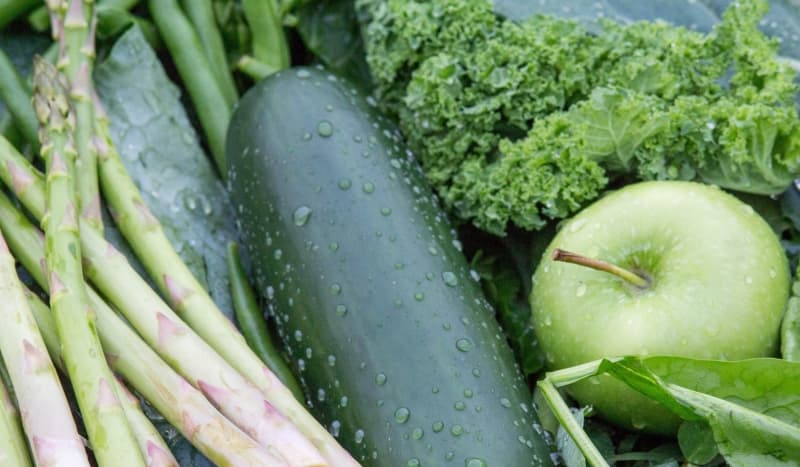Nutritional Requirements Of A Child?

Children have very clear nutritional needs, what should you be aware of to ensure your child gets what they need?
Child nutrition is vitally important; the kinds of food that children eat when they are younger can largely determine their health as an adult. Child nutrition is even more important in recent years, when child obesity is at an all time high. However, understanding child nutrition can be a fairly complex process so here are a few tips on how to ensure that you child is getting the best possible nutrition in their diet.
Planning Your Child's Diet
When you are planning child nutrition for school-aged children, it is important to note that even though the growth of a child of this age is much slower than in infancy and they may have smaller appetites than an adult, they still have high nutritional needs in order to maintain their energy levels and ensure that their health does not suffer. To this end, it is vital to ensure that all of their meals and snacks are rich in nutrients and energy sources. This is the time when children learn important lessons about food and the habits that they pick up now can have an influence on their future health.
Structured And Varied Diet
It is therefore very important to create a structured and varied diet and ensure that children eat regular meals and snacks in order to establish good eating habits for the future. Balance is the key here; it’s fine for children to eat ‘negative’ foods i.e.. chips and burgers occasionally, but most certainly not for every meal! If a child has a limited number of foods they won’t be obtaining a full range of nutrients so it’s vital to ensure that your child is eating foods from each of the main food groups.
High Energy Foods
In particular, school children will need high energy foods for growth and to maintain their activity levels. Ensure that children eat plenty of fruit and vegetables and also a few carbohydrates (i.e.. bread and pasta) to maintain their energy levels, avoid fatty and sugary snacks wherever possible as they can have a detrimental effect on their health and only offer a short-term energy ‘boost’. Excessive consumption of fatty and sugary snacks can also lead to weight problems i.e.. child obesity.
Calcium
Calcium is a mineral that is very important for healthy bone development. You can find good amounts of calcium in dairy foods such as milk, cheese and yoghurt and also in fortified calcium in foods such as cereals, green leafy vegetables and orange juice. The vitamin Folate is also important for child growth and fortified cereals can be a great source of folate, as can green leafy vegetables and bread.
Iron
Iron is also important to help keep red blood cells healthy in children (and therefore help with oxygen circulation). Insufficient levels of iron intake can lead to iron-deficiency anaemia, so ensure that children get plenty of iron in their diet. Good sources of iron are red meat (such as liver), fortified breakfast cereals and beans/pulses. Also try to combine iron sources with vitamin C foods such as fruit juice to help with iron absorption.
You Might Like
Children And Exam Stress
Exams are really stressful for children but research also suggests they are really stressful for parents too. Learning how to cope with exams early is key to success later on.Processed Food More Nutritious Than Fresh Foods?
Can processed foods ever be more nutritious than fresh foods like vegetables and fruit? Find out more on what we're talking about now.Keeping Children Safe Whilst Gaming
Gaming has become extremely popular amongst children. But what should parents be aware of to keep their children safe?How Bad Are Energy Drinks For Children?
Energy drinks have been in the news a lot lately. But how bad are they for us and is there a place for them if you play a lot of sport and need an energy boost?Survive Parenting A Child With ADHD
A guide to ADHD and how to best manage the parenting of a child with ADHD.
Useful Websites
- My Protein
From protein to Amino Acids, get high quality supplements from this leading sports nutrition brand. Over 2000 supplement products at the best prices on the market plus free UK delivery. - Maximuscle Sports Nutrition
Maximuscle offer sports nutrition products that aim to help you build muscle. So check these products out for bigger arms, broader shoulders and a bigger chest. - Healthspan Supplements
Vitamins and supplement provider with prebiotics, probiotics, minerals, skin and hair care, high strength cannabidiol Oil (CBD) as well as active nutrition and more. - Compare DNA Tests For Home
Why not check your DNA using home test kits and use for fitness, nutrition, ancestry or even medical conditions. Simple and easy to use swab tests for privacy and speed. - What's Inside - GDA
Information on GDA food labeling that shows calories, fat, saturates, salt and sugar required for a healthy balanced diet. With guideline daily amounts and a food calculator find out more. - Compare DNA Testing Kits
Home DNA kits are available for a range of areas including animals, paternity, ancestry, fitness, nutrition and medical reasons. Why not get your personal NA report sent through in a few days. - Add Your Website Here